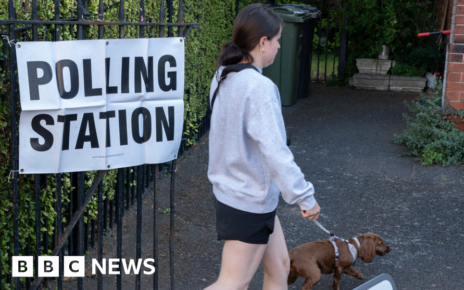[ad_1]
The largest music publisher in the world has sent letters to Google, Microsoft and OpenAI demanding to know if they have used its songs to develop artificial intelligence (AI) systems.
Sony Music, which represents artists like Beyonce and Adele, is forbidding anyone from training, developing or making money from AI using its songs without permission.
In the letter sent to more than 700 firms, Sony Music said it has “reason to believe” that the addressees “may already have made unauthorized uses” of its music.
The BBC has approached Google, Microsoft and OpenAI for comment.
Sony Music has given firms a deadline to respond and says it will enforce its copyright “to the full extent permitted by applicable law”, such as the EU’s upcoming AI Act.
Sony Music’s complaint is part of a bigger debate that has been raging since the emergence of that latest generation of AI-powered tools: what data were they trained on, and did they seek permission to use it?
For example, a chatbot might have “learned” to give an answer in a particular written style by being shown billions of books, while a tool that generates pictures might have been fed millions of existing images.
Similar software exists for creating music – Sony Music’s complaint is that it is only able to to do so after being exposed to millions of songs, some of which it owns the copyright to.
Google and OpenAI have both developed AI tools that can generate music – though it is not known what data they used to train them.
In a letter spanning several pages of demands, Sony Music asks each of the hundreds of addressees to send it:
- Details of songs it owns that were used to train AI systems
- How the songs were accessed – e.g. through online streaming services
- The number of copies made of the songs, whether the copies still exist, and how long they existed for
- Why it was necessary for such copies to exist for the amount of time they did – assuming they existed in the first place
It said in the letter that a copy could consist of just a portion of a song – and it was willing to come to terms on licensing agreements for future use.
But it is unclear whether any of the AI firms contacted did train their tech on music owned by Sony Music – and even if they did, whether any laws have actually been broken.
Both in the EU and US, there are questions around whether it is copyright infringement to train AI tools on such content, or whether it falls under fair use and “temporary copying” exceptions.
Nana Nwachukwu, a lawyer at AI ethics firm Saidot, said training AI models with copyrighted music “may constitute a copyright infringement” under current EU rules.
She said “exceptions exist” for businesses with “lawful access” to the music, so long as it is either in the public domain and not behind a paywall, or it has been licensed for AI training.
But the upcoming EU AI Act will change this.
“The legislation will mandate that all general-purpose AI models… must comply with rigorous documentation and transparency requirements,” she said.
“This includes the obligation to publicly disclose detailed summaries of the training data employed, adhering to copyright holders’ opt-outs, and ensuring that all data usage complies with EU copyright laws.”
The issue will be tested in court in the US, in several legal cases separately representing people like Game of Thrones author George RR Martin, comedian Sarah Silverman, and the New York Times.
Meanwhile, as far as music is concerned, Sony Music rival Universal Music has brought legal action against Antrophic in the US, claiming the AI firm infringed its copyright over the lyrics of hundreds of songs.
[ad_2]
Source link



